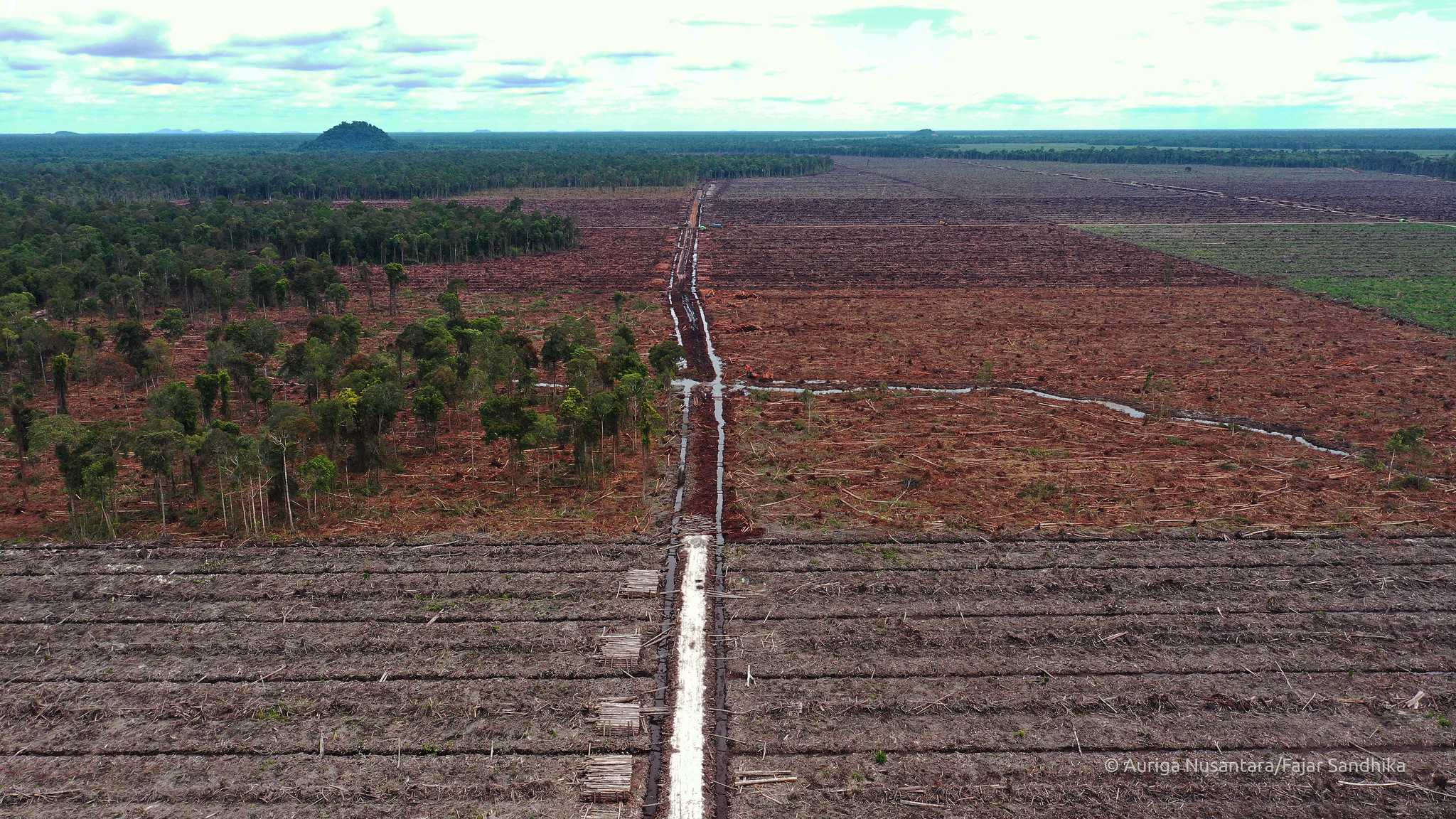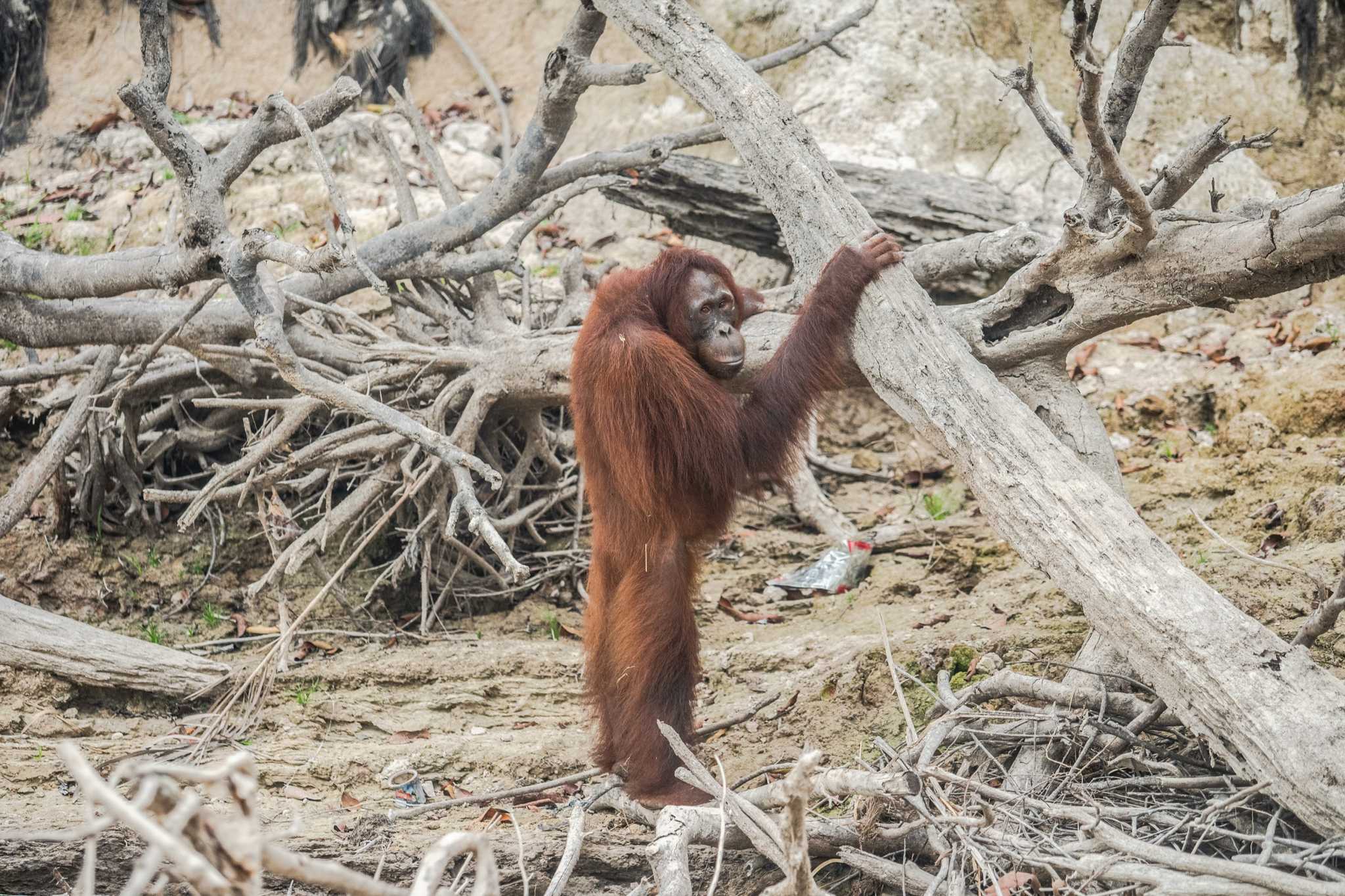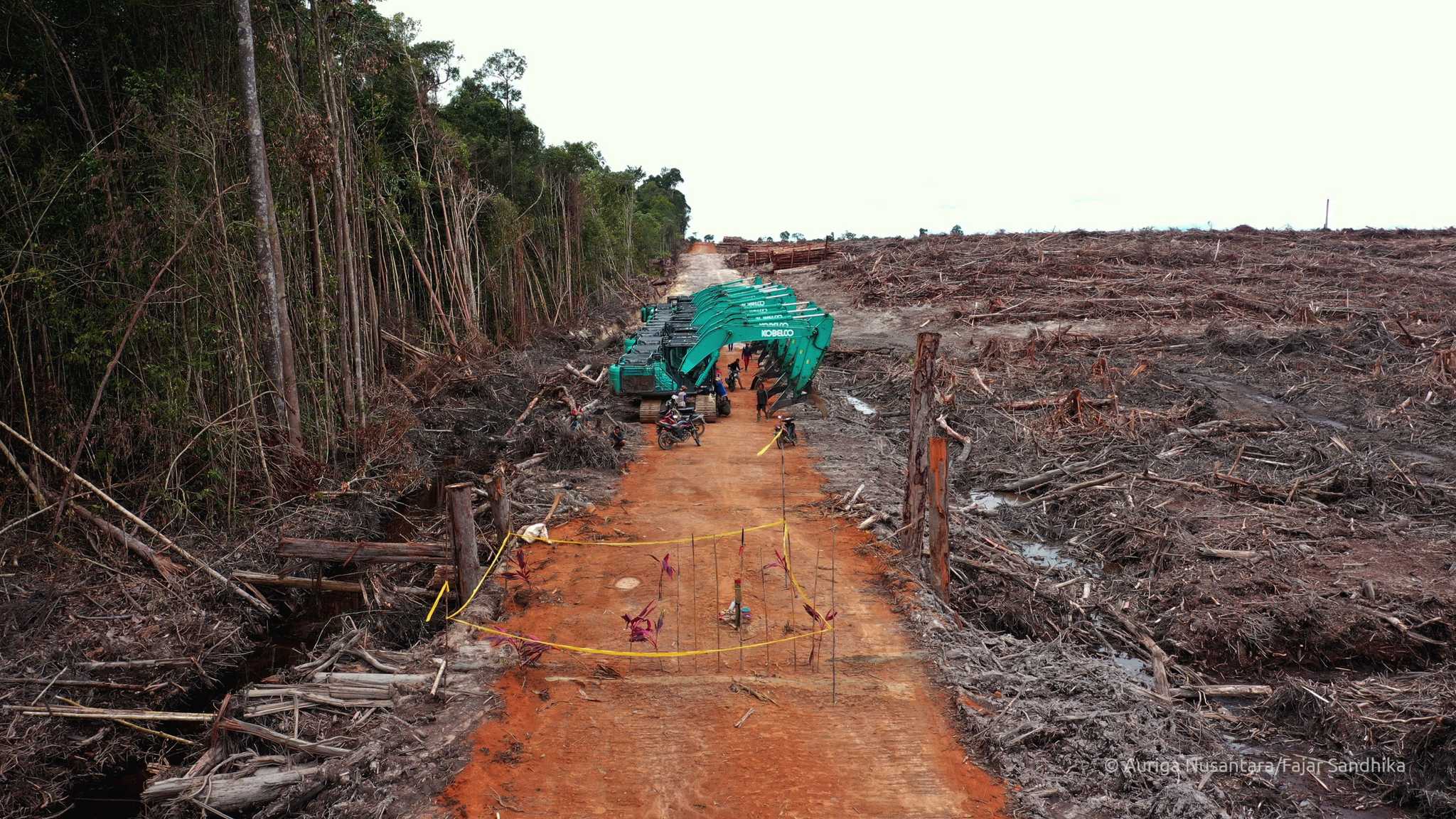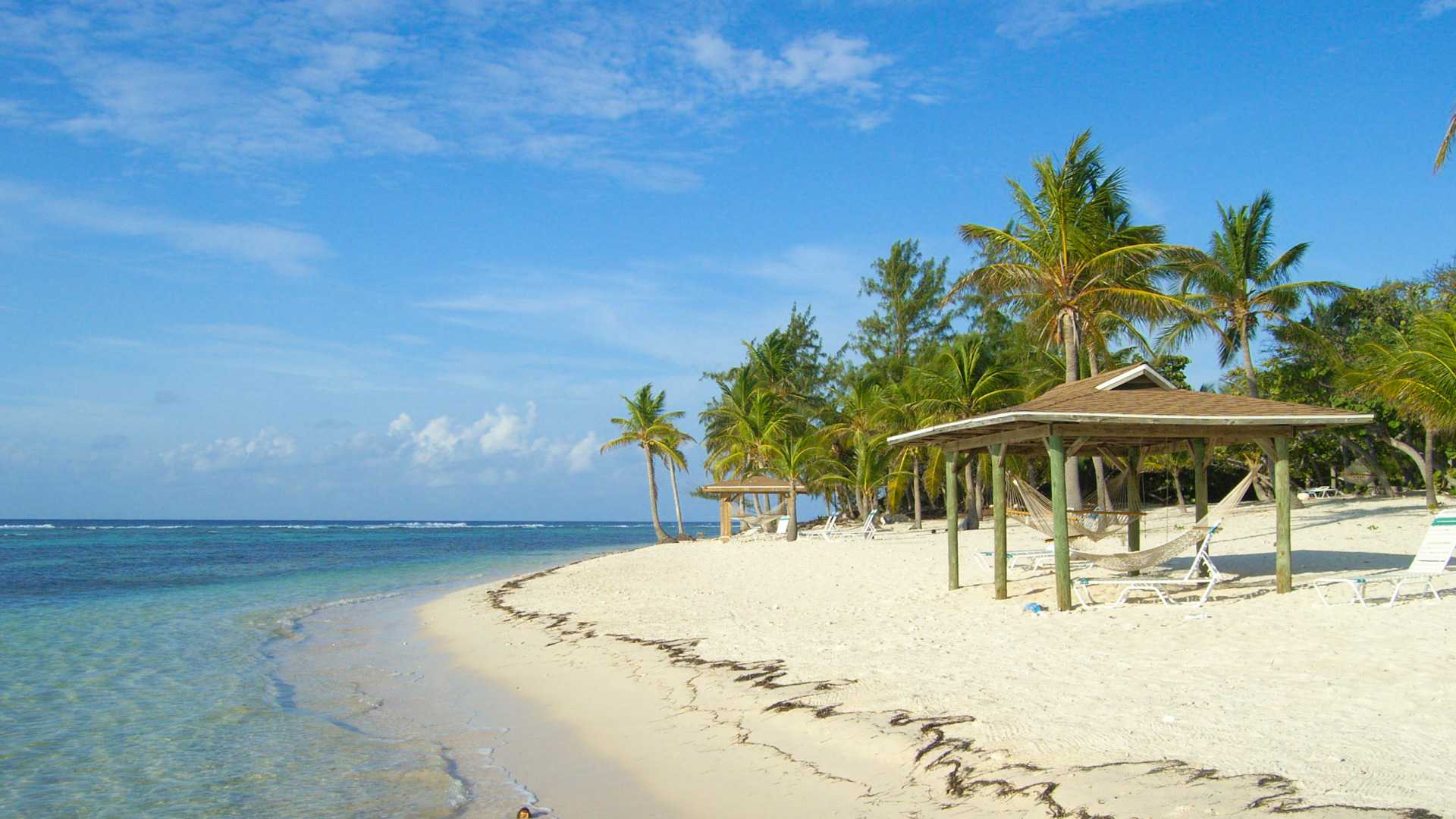The world’s secrecy jurisdictions play a well-documented role in a suite of global problems.
These states, typically small tropical island nations, allow people to incorporate companies without publicly revealing who owns them. In this way, they have enabled oligarchs, public officials and crooks to hide away their ill-gotten assets from prying eyes.
The net result? An orgy of tax evasion, money laundering, terrorist financing and graft. Companies registered in just one such state – the British Virgin Islands – have reportedly been involved in corruption cases worth hundreds of billions of pounds.
But secrecy jurisdictions are also now playing a significant role in another, quite different, problem: the destruction of Indonesia’s rainforests.
On the island of Borneo, a company named PT Mayawana Persada has been chomping through thousands of hectares of orangutan habitat. Last year it cleared more rainforest than any other in Indonesia. In second place was PT Industrial Forest Plantation, which has also cleared large areas of orangutan habitat.

This is a finite resource that is being lost. The orangutan population was cut in half, between 1999 and 2018, as Indonesia’s rainforests were plundered. The Bornean orangutan is considered critically endangered, with populations still falling.
But the ultimate beneficial owners of both Mayawana Persada and Industrial Forest Plantation cannot be held to account for their actions. They are hidden from public view, split between anonymous companies in the British Virgin Islands and Samoa.
Both firms are planting fast-growing timber species, to feed global demand for wood pulp and paper products. Industrial Forest Plantation is feeding a giant woodchip mill in Borneo, PT Balikpapan Chip Lestari. The owners of the mill are also unknown, hidden behind an anonymous company in – you guessed it – the British Virgin Islands.
Elsewhere in Borneo, construction is underway on a giant pulp mill. It is so large that when it’s at capacity it will need 100,000 truckloads of wood to feed it every year, according to nonprofits monitoring the project. But who’s behind it? You’d have to take a guess, because they own it through a company in the Cayman Islands.
Pulp is one of the two main commodities that has driven deforestation in Indonesia over the last two decades. The other is palm oil. A group of companies known as New Borneo Agri has cleared far more forest than any other to plant that commodity, in the past five years. Its owners, too, are obscured by the British Virgin Islands’ secrecy-friendly corporate rules.
These companies are not bit-part players. For several years now, they have led the way in clear-cutting Indonesia’s rainforests. The loss of these ecosystems has devastated Indonesia’s biodiversity – including endangered species like the Bornean orangutan and Sumatran tiger. It is also a global climate problem, with Indonesia’s emissions from deforestation making it one of the world’s leading sources of greenhouse gas emissions.

The nation has made significant progress in protecting forests recently, in part by reining in the palm oil sector. But that progress is now under threat from a resurgence in deforestation by the pulp sector - principally at the hands of anonymous companies.
There are some clues as to who may be behind them – and why they’re hiding their identities.
Over the past decade, the major producers of both palm oil, and pulp and paper products, have committed to leave forests standing in response to pressure from consumers. But there is mounting evidence that some of these ostensibly sustainable companies have established secretive “shadow companies” that allow them to continue expanding into rainforests.
Put simply, companies can run two arms: a "sustainable" arm certified by schemes like the Forest Stewardship Council (FSC) or the Roundtable on Sustainable Palm Oil (RSPO); and a "shadow" arm that can engage in deforestation or violate local communities' rights.
This can enable companies to maintain access to buyers in Europe and the US keen to avoid products tainted by deforestation, while expanding their business by opening up new land for plantations elsewhere.
That is the allegation that has been made against Royal Golden Eagle and First Resources, two of the largest producers of pulp and palm oil, respectively, in Indonesia.
Environmental groups digging into the timber plantation companies and giant pulp mills named above have found evidence – ranging from the compelling to the tantalising – linking them to Royal Golden Eagle.
Meanwhile, our own investigation at The Gecko Project found considerable evidence to suggest that First Resources and the Fangiono family that owns it are also behind New Borneo Agri – the palm oil group that has been expanding into forests for much of the past decade. Former employees told us that, internally, it was an open secret that First Resources and New Borneo Agri operated as one group. Legal documents showed that two First Resources employees had legal control over the New Borneo Agri companies.
Royal Golden Eagle and First Resources have both repudiated allegations that they control these groups. And so far, those denials have held - allowing them to maintain access to sensitive markets, the imprimatur of sustainability certification, and even hundreds of millions of dollars in “sustainable” finance.
Of course, if the ultimate beneficial owners of the anonymously-owned companies behind all this rainforest destruction could be identified with confidence, it would provide a clear answer: whether Royal Golden Eagle and First Resources’ hands really are clean, or whether they are mounting both subterfuge and deforestation on an industrial scale.
In theory, the writing should be on the wall. A 2018 Indonesian presidential regulation requires companies to disclose their beneficial owners. In 2022, the government made the register publicly available. But two separate analyses published this January - one on the palm oil sector by Greenpeace, the other on the pulp sector by a coalition of nonprofits - raise serious questions over the efficacy and accuracy of the system.
Greenpeace found companies had lodged their own company officers, or even other companies, as their beneficial owners. In the case of one group, there were discrepancies between the named beneficial owner and other information made public by the company. The nonprofits questioned the accuracy of submissions related to the pulp sector, and found that companies had registered offshore companies as their owners.
Both analyses reinforce the well-established importance of verification in beneficial ownership registers. Without rigorous checks, registers can allow companies to present yet another layer of subterfuge.
Legislation passed by the UK government in 2018 should also, by now, have forced the British Overseas Territories that repeatedly occur in this story to implement their own public registers of beneficial owners. The deadline for those to be implemented was the end of 2023.
The territories have all committed to introducing such registers, according to research published by the UK parliament. But they are dragging their heels, and have griped that they are being required to move ahead of global standards.
In a UK parliamentary debate in December, shortly before the government’s declared deadline passed, the MP Margaret Hodge, who has been a leading call for their implementation, sounded a reminder of the stakes.
“The epidemic of tax avoidance, tax evasion and economic crime flourishes in an environment of secrecy, and our overseas territories and Crown dependencies facilitate that secrecy,” she said. “We know from the ever-growing number of leaks of data on financial misdemeanours that their role is central to enabling economic crime.”
To that, MPs can now add the destruction of Indonesia’s rainforests.

As beneficial ownership transparency efforts stall, the owners behind Mayawana Persada, Industrial Forest Plantation, New Borneo Agri and the Bornean mega-mills have been able to continue operating in secret. But compelling these companies to disclose their owners could save thousands of hectares of tropical rainforest – including orangutan habitat – that remain standing in their concessions. If it turns out that “sustainable” companies do ultimately control these companies, they will be unable to clear that forest without losing access to markets and green finance.
Transparency over beneficial ownership could save vast areas of tropical rainforest. Until then, secrecy jurisdictions will continue to play a key role in exacerbating the climate crisis.
Read more reporting on corporate accountability from The Gecko Project.
Header image: Cayman Beach, Adam Gerritsma CC BY-ND 2.0 DEED..

